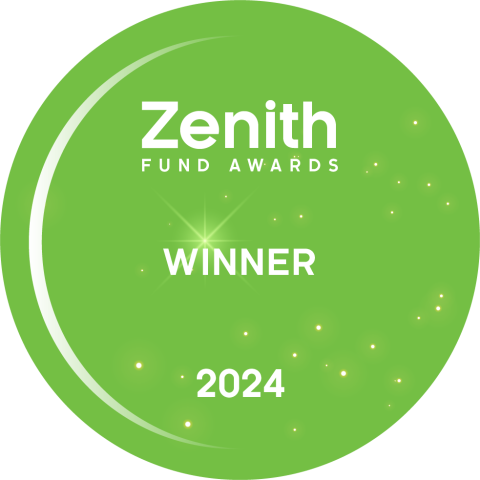18 Sep 2025
Hemnet’s new major shareholder: “The share is extremely cheap”
[Translated from Swedish original]
The hedge fund GCQ has quickly become one of Hemnet’s largest owners and is now pressuring the board for measures to lift the depressed stock.
In a letter to the chairman, the fund warns that the low price makes the housing platform an obvious acquisition target.
“The risk of that is very high,” investment manager Douglas Tynan told Di.
So far, 2025 has been a tough year for Sweden’s largest housing platform. Since the price peak in February, the stock has lost almost 40 percent and is now valued at the lowest level of expected profit since the IPO in 2021.
It is chilly in the Swedish housing market. In addition, there are concerns about competition from SBAB-owned Booli, which offers free listings and was one of the factors behind Nordea’s recent double-lowering of its recommendation for the stock.
At the same time, Hemnet HEM +0.46%‘s new more expensive ad package Max, which was launched in the spring, has raised criticism and fears that sellers and brokers will look to other platforms.
The short sellers are breathing blood. Over 3 percent of the shares are now shorted, close to the highest level recorded since the IPO.
In this situation, the Australian hedge fund GCQ has chosen to go in the opposite direction and has been heavily on the buy button.
The fund picked up its first Hemnet shares as early as 2022, but this summer it rose to the top ten largest owners. In recent weeks, the purchases have accelerated and on Friday, GCQ climbed to third place in the list of owners, with 5.18 percent of the shares.
“We have bought very actively over the last two days,” investment manager Douglas Tynan told Di on Thursday.
GCQ’s portfolio is concentrated in about 20 holdings globally. Hemnet has now sailed up as the largest, with a share of around 11 percent.
“The stock is extremely cheap,” says Douglas Tynan, who was previously head of research at hedge fund VGI Partners.
The criticism of Hemnet’s price increases, which has caused both brokers and researchers to sound the alarm, GCQ sees as a blow in the air. With an advertising cost of 0.2 percent of the average home price – half the level of the market leader in Australia – the fund believes that Hemnet has plenty of room to charge more.
“Hemnet’s products provide a value for home sellers that is many times higher than the cost of advertising. Therefore, we expect that the average price paid by the customer in five years will be significantly higher,” says Douglas Tynan.
He doesn’t give much thought to the concern for Booli.
“When you sell your biggest asset, you won’t be satisfied with the ad being spun up by Booli, without having control over the ad or the option to upgrade to a premium package. You sell your home, and you will pay the small amount of money that Hemnet takes.”
In light of the fall in share prices, GCQ has sent a letter to Hemnet’s Chairman of the Board, Anders Nilsson. The fund calls for a number of measures – above all, major buybacks.
GCQ points out that Hemnet has room to take on more debt. The board’s own target allows for a net debt of up to two times operating profit before interest, taxes and depreciation.
At that level, Hemnet could, according to GCQ, repurchase around four million shares, corresponding to 4.3 percent of the outstanding stock.
“We urge you to consider raising the buy-back mandate to this level,” the fund writes in the letter.
The fund also wants to see better PR work. Hemnet is described as “under-owned and poorly understood by the investor community in Sweden”, and GCQ criticizes the fact that the CEO has not done a major interview since 2021.
“We believe that there is nothing to gain by hiding from a protracted attack,” writes the fund, which believes that Hemnet has ended up in the firing line for negative media reporting, especially from Dagens industri.
Douglas Tynan says that the letter to Anders Nilsson has already had an effect. In August, Hemnet increased its share buybacks to 9,000 shares per day.
“We are very pleased with the decision from the board.”
GCQ says it is long-term and therefore not worried about the price pressure itself. However, the fund warns that the low valuation makes Hemnet an obvious target for an opportunistic bid.
“It is my biggest concern with our investment in Hemnet, that it is an obvious acquisition target. Venture capital companies know this type of business well,” says Douglas Tynan.
He also highlights Rupert Murdoch’s News Corp, which runs Australia’s largest housing portal through Rea Group. Tracey Fellows, who is also a member of Rea Group, is on Hemnet’s board, he points out.
“Hemnet would be a very attractive asset for Rea Group, so there is a real risk that Hemnet will ultimately be owned by Australians. And we would hate to see a takeover of, say, SEK 400 when we think it’s worth so much more.”
GCQ Funds Management
Founded in 2021 in Sydney, Australia, by Douglas Tynan, David Symons, and Justin Hardwick.
Opened to external investors in July 2022.
Manages approximately AUD 1.1 billion (just over SEK 7 billion) for mainly wealthy private individuals.
The portfolio is concentrated, which is reflected in the name GCQ, which stands for Global Concentrated Quality.
Has delivered a 125 percent return net of fees since inception. In its first full year, 2023, the return was 50.2 percent.
Have relatively small short positions, corresponding to 2 percent as of the end of August 2025
In its latest letter to investors, GCQ writes that their base scenario is that the stock triples in five years.
“I would be very surprised if Hemnet was not traded at at least SEK 1,000 within three to five years,” says Douglas Tynan. The Hemnet share closed at SEK 259.40 on Friday.
Martin Rex, Dagens industri
End.


